We met Lullaloop at the Baby Show several years ago and have watched their gorgeous business grow over the years. It’s a fabulous idea; style your little ones sustainably, whilst simultaneously saving money, space in the wardrobe & the planet, yes please! Who’s the brains behind the brand? Another Super Mum of course! Meet the lovely Jodie, founder and creator of Lullaloop and mummy to three small people.
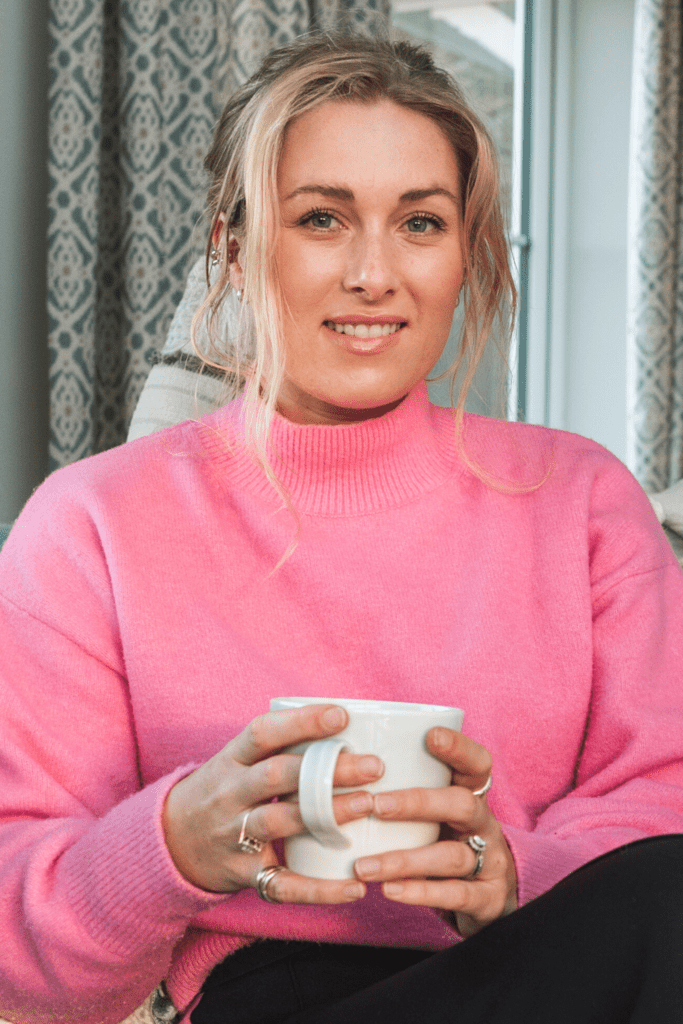
Jodie tell us a bit about your background; pre-motherhood and pre-Lullaloop?
Career-wise, I worked in technology sales for 10 years. I focused on the retail sector for most of my career and worked with many of the U.K.’s biggest retailers, predominantly fashion retailers, on how to leverage technology to improve their customer experience and increase revenue.
Did you work in sustainability or fashion before starting the brand?
I worked with fashion retailers before, but never on the design side, mainly with their customer, marketing, technology and web teams. While sustainability may have been a longer-term goal for the retailers I worked with, it certainly wasn’t a priority or something they focused on. I enjoyed my previous work and worked with some amazing brands with some fantastic teams, however, as I started to become more environmentally conscious in my mid-late 20s, there became a conflict with the work I was doing and the environmental impact it was having.
What inspired you to create Lullaloop? Was there a specific lightbulb moment?
When I had my first little girl, I was astounded by how quickly babies outgrew their clothes, how little gifts were worn (if at all) and what a pain it was to organise and store outgrown clothes. I also had no appetite to use my time to sell the clothes for so little, especially when I returned to work. I couldn’t believe how inefficient and wasteful clothing babies was, then when I had my second, another girl, but born in a different season, I couldn’t use the majority of the clothes I had stored! At the same time, I kept hearing parents everywhere moan about how quickly their babies outgrew their clothes and it became apparent I wasn’t alone and that there was a demand for a more affordable, stylish and less wasteful approach to clothing our babies.
I became obsessed with this problem, after surveying and talking to hundreds of Mums I had really consistent feedback, which mirrored my own feelings, parents wanted to be sustainable when clothing their babies but they felt the options currently available meant they had to sacrifice on style and/or affordability, they also found sorting the clothes themselves overwhelming.
Once you had the idea how long did it take you to get the business up and running?
I started working on the business during my second maternity leave and then alongside being a mum and working in retail tech sales at Oracle when I returned to work, but I decided to take the leap and quit to work full-time to launch Lullaloop in March 2021. While I had worked with many of the biggest UK fashion retailers, I didn’t have a clue about how you make clothes, let alone how you then rent them out…with a lot of mistakes, delays due to COVID, factory changes, organic cotton shortages and 1000 other obstacles we pushed back our launch 4 times, but we finally launched Lullaloop in March 2022.
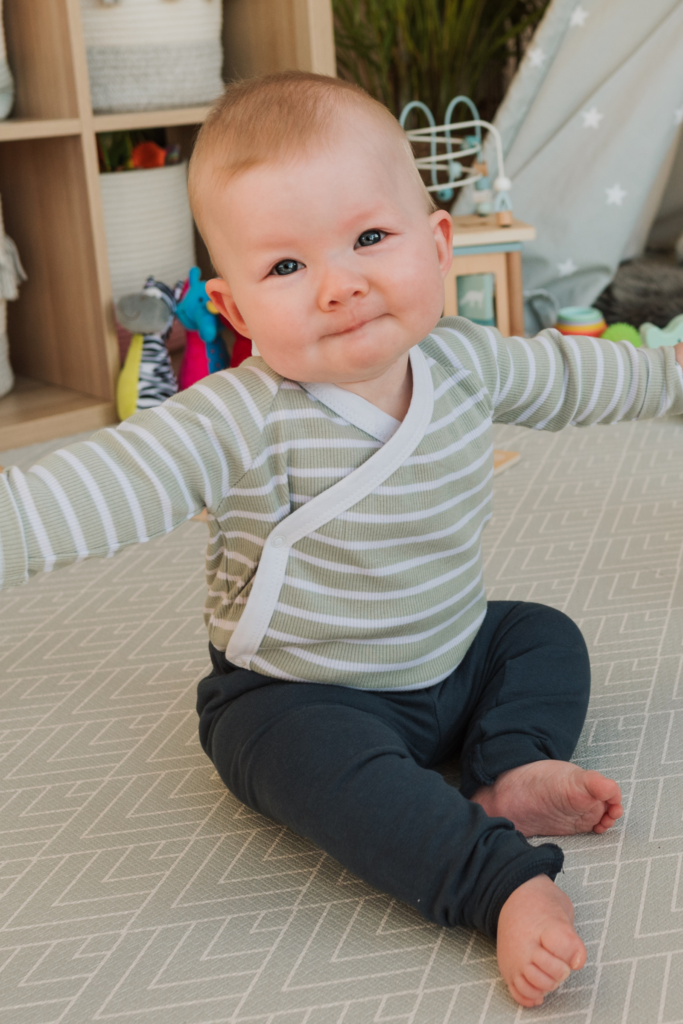
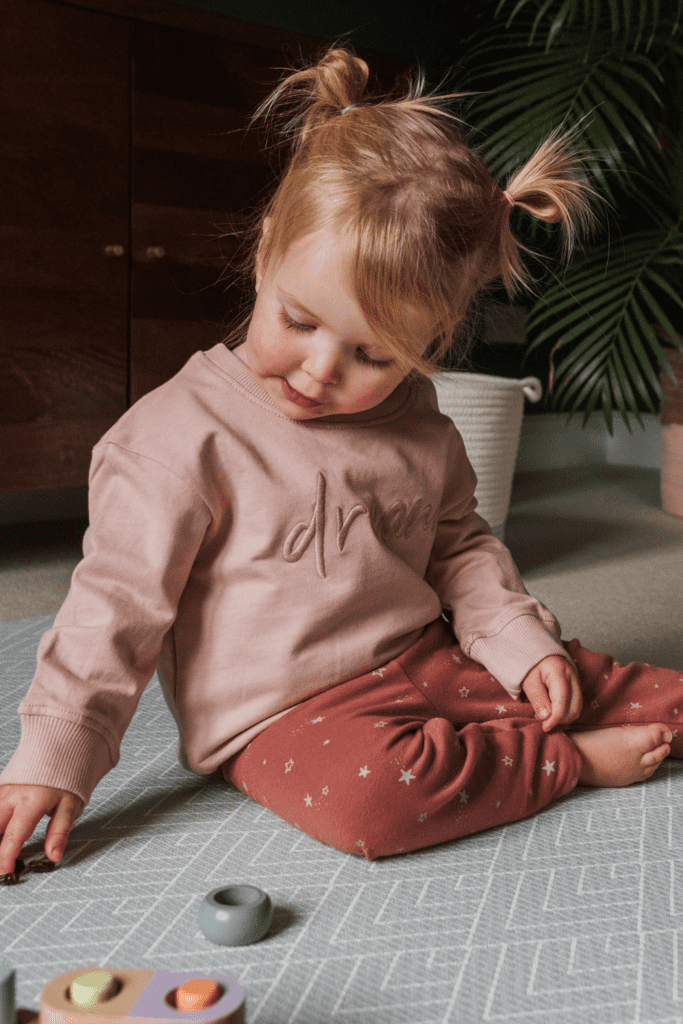
How do you source the clothing? How do you ensure it is all ethically produced?
We have some fantastic buyers, who specialise in organic cotton and childrenswear who source and find our factories for us. It was a lot of trial and error with sampling with different factories and buyers until we found ones we were happy with from a quality perspective, as well as an ethical one. Our buyers and factories have taken a risk working with us, as our quantities are relatively small and we are tenacious on the detail and quality. They believe one day it will pay off as we continue to grow quickly, so hopefully we prove them right!
In terms of ensuring our clothes are ethically produced, we are comfortable on the fabric side as working almost exclusively with GOTS organic cotton ensures those standards. In terms of factories, it has been harder, especially during COVID, which is when we started working with them, as we weren’t able to travel to see them in person. We have video tours and continuous spot check-ups via video, as well as factory reports but honestly, as a small business there is only so much we can do, we rely on the promises of others and I’m sure there are areas we van improve upon in the future.
What was the toughest challenge you faced while setting up the brand?
Designing and producing our collection. Designing and making our own clothes was really important to me because for the rental model to work, both for parents and the environment, the clothes needed to be built to last and they need to be consistent in terms of quality and sizing. That coupled with the importance of style and usability of the clothes, me and my designer were meticulous with the details and that meant we had to be patient; we changed factories many times and we saw samples over and over until we got it right. This was an expensive and time-consuming process and one I knew little about, it was very much a learn-on-the-job situation! Our original production time was 90 days, and it took us over 9 months to receive our first collection, the rest of the business was ready to go, and it took a lot of patience to keep delaying launching the brand.
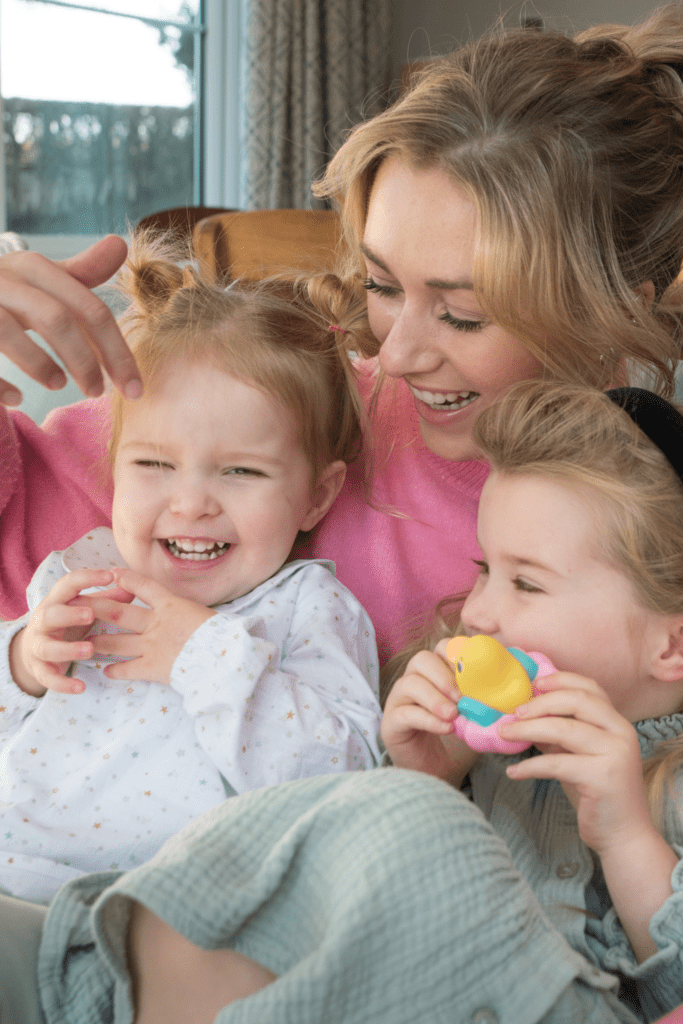
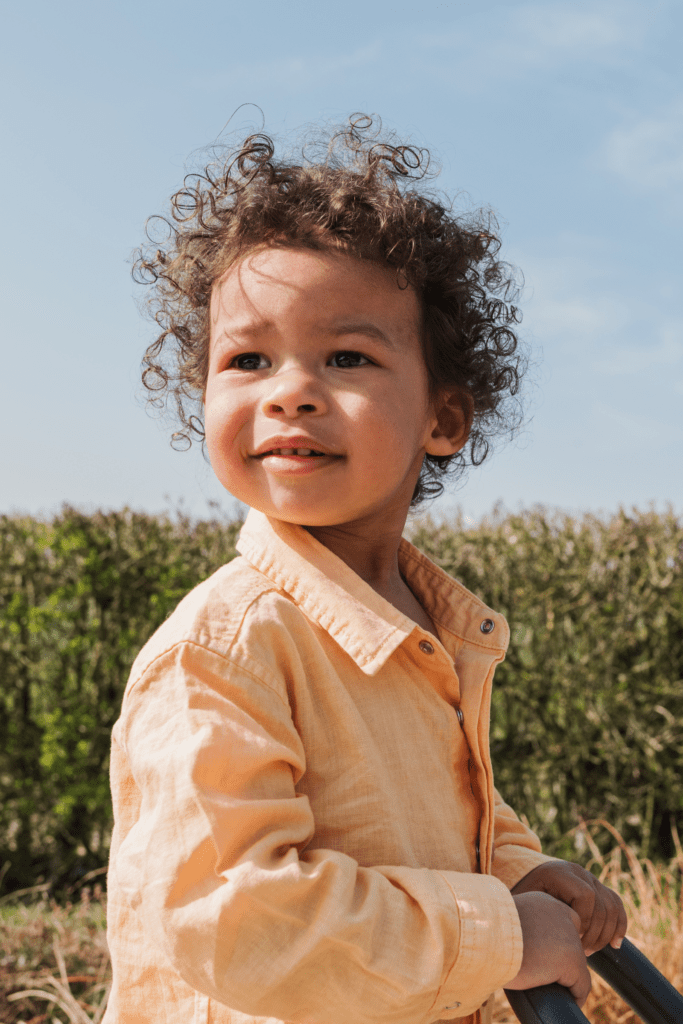
What is the toughest challenge you face now?
Knowing how to prioritise my time! I have 3 small children, aged 5, 3 and 2 weeks old and prioritising time for my family is very important to me but I also have to balance that with being the only person full-time in the business, which is my fourth baby, and one that’s growing pretty quick. It’s a constant juggle, just like it is for all parents. I always find it difficult to decide where to focus my time, resources and money when it comes to Lullaloop!
Your girls are only little, how do you juggle your roles as founder of a business and as a mummy?
They are, and I now have a 2-week-old little boy and there is no such thing as a maternity leave when you are a business owner! I have some rules that I always stick to, I have one day off from the business in the week where I focus on the children and have the younger ones with me, I don’t do any work while they are awake (unless there is a real crisis). I do (almost) all drop-offs and pick-ups and once they are home from school and nursery, I don’t do any more work until they are in bed and that includes no phone and laptop around until they are asleep.
School holidays, however, are tricky – they have to tolerate a lot of work with Mummy! They also often do work with me on the weekend, which isn’t ideal but I hope it is also inspiring for them. Most of the time, they enjoy being involved.
In terms of juggling, I think my friends, quality time with my husband and self-care is really where I am currently struggling and something I am trying to work on!
Do you have a good support network?
I do, I have amazing friends and family who help a lot with my business and children. My parents live a few hours away but my Mum comes to help me in the day once a week with the kids and with the business in the evening. So while we don’t have our family on the doorstep, we are very lucky with the help we have around us.
Can you explain to our readers a little bit more about how the process works, and how it will benefit them and their parenting journey.
Customers choose how much they would like to rent, through our ‘Stylers’, where they can decide how much they would like to rent from our own clothing collection. They also decide if they’d like us to style their wardrobe, to create the most versatile wardrobe, or if they’d like the flexibility to pick the pieces that make up their wardrobe.
Once they have their wardrobe, they enjoy it, worry-free! There are no charges for stains or accidental damages and they pay to rent their wardrobe monthly with no commitments.
Once customers are ready for a new size, styles or there is a season change, they simply switch their wardrobe, for no additional cost!
The benefits are taken from our ethos; Style, Sustain and Save.
Style – a unique and high-quality collection which is designed as a capsule collection, maximising the number of outfits from your wardrobe.
Sustain – reduce the carbon impact of dressing your child by 60-75%. We reuse, repair and recycle all the clothes.
Save – time, money and space. Save at least £200 per size, compared to buying this quality of clothes. Save time and space sorting and storing 7 sizes in just 2 years.
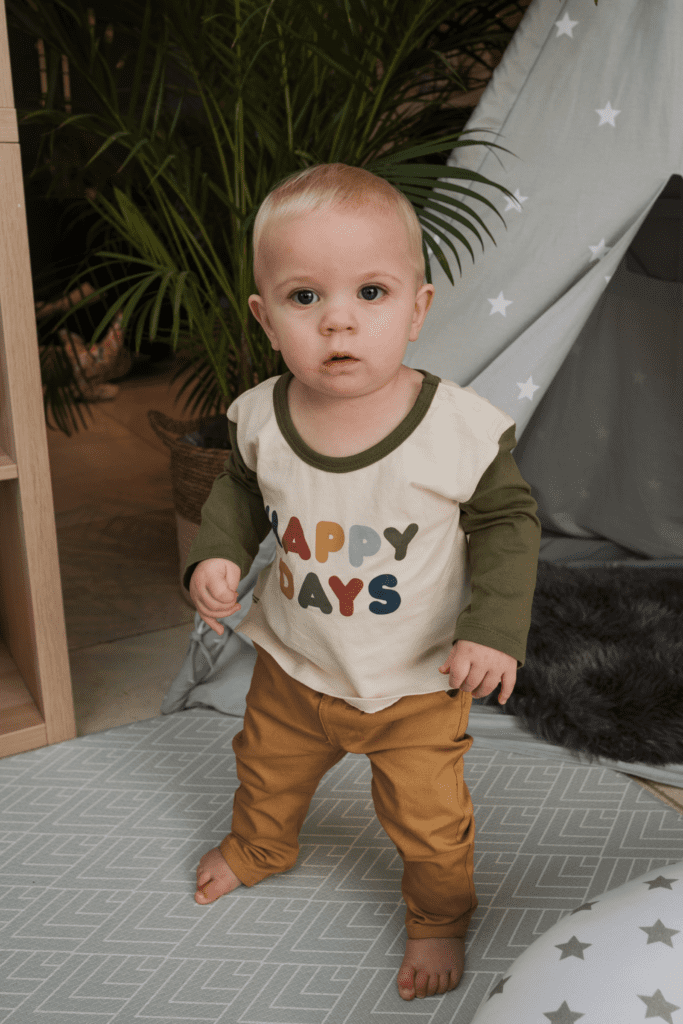
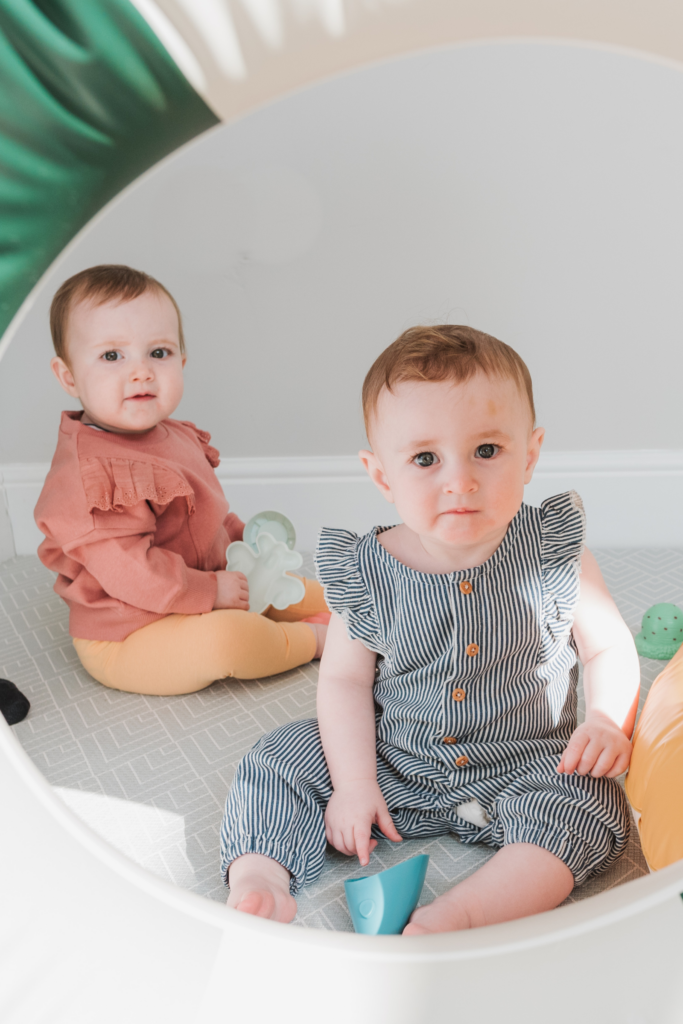
Lullaloop is the perfect example of a brand that is thinking about the environment and sustainability, has this always been something you are passionate about or did it stem from becoming a mother?
My brothers actually started me on my environmental journey, they both live a very environmentally conscious life, so they educated me on the impact society was having on the environment and I started to make small changes to my life in my late 20s. My time working with retailers also really focused my mind on conscious consumption and production, as I learnt that 10% of the world’s carbon is created by fashion and from my experience, it wasn’t a primary focus of the majority of the biggest retailers. The impact on the future started to really weigh on my mind.
What other steps have you taken, as a mother, to be more sustainable?
Outside of being a mother – when it comes to fashion, I bought no clothes at all for a year in 2022. I now buy second-hand clothes or rent them. I try to do the same with the girls, although there are fewer choices out there, especially in terms of rental, that I like for older sizes (I’m on it!). For my third baby, I am giving cloth nappies a go and switching to reusable wherever we can: pads, wipes, cloths etc.
The girls are very involved with us trying to reduce the energy and water usage in our house, we wash our clothes at 30 degrees and we only use the tumble dryer for towels (both better for your clothes too), we have showers as well as baths for the girls, which they actually love. We love our compost and all the worms in there! We use refillable milk, body washes, cosmetics etc. We buy our meat and veg locally, with no packaging.
My husband and I eat vegetarian during the week and we try and holiday in the U.K. more than we fly abroad.
There are PLENTY of areas we can improve, I think it’s really hard as a parent as often you are trying to juggle so much.
Are there products and services you have found along your journey that might be interesting to our readers?
Refillable cosmetics I love, I only use shampoo, conditioner and body wash brands that are refillable. Not only is it better for the environment but it’s also a cheaper way to buy. I personally use Ouai as it also is plastic-free, again better for the environment and your hair!
Toilet roll is another one, we use bamboo toilet roll which is bleach-free and we buy it in bulk (less packaging and deliveries). The brown colour is something to get used to but it’s such an easy eco swap! We use Naked Sprout.
Home compost is another great one, getting your own compost bin will amaze you at how much your domestic waste is reduced. We also then use the compost with the girls, to plant things so they really grasp the concept and get involved! We also base purchases around composability too, like our coffee pods from Grind which disappear so quickly in our home compost.
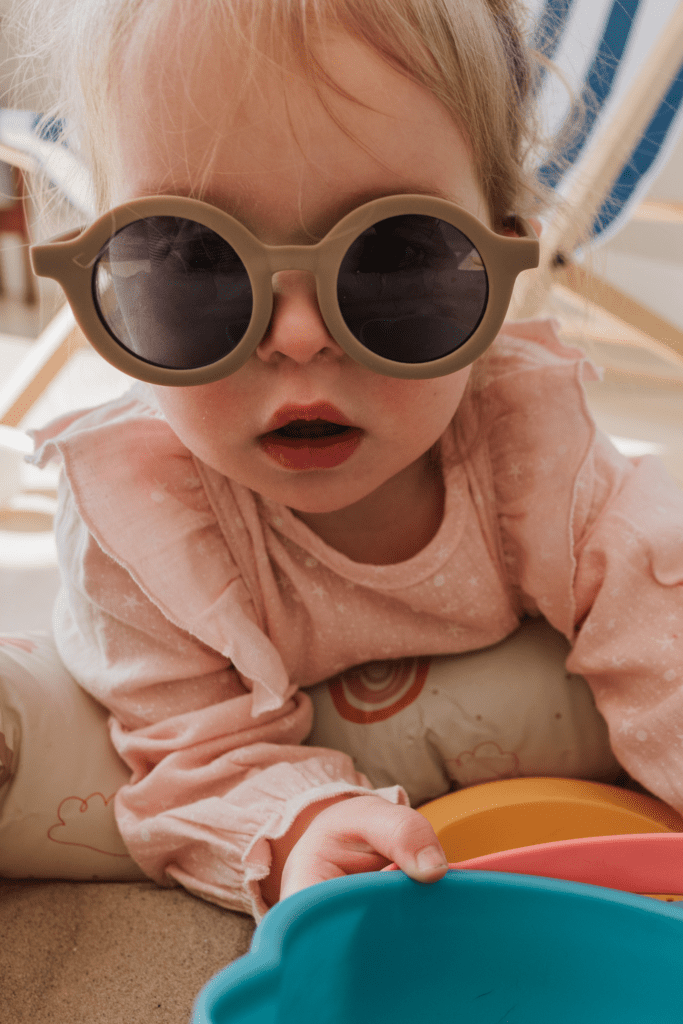
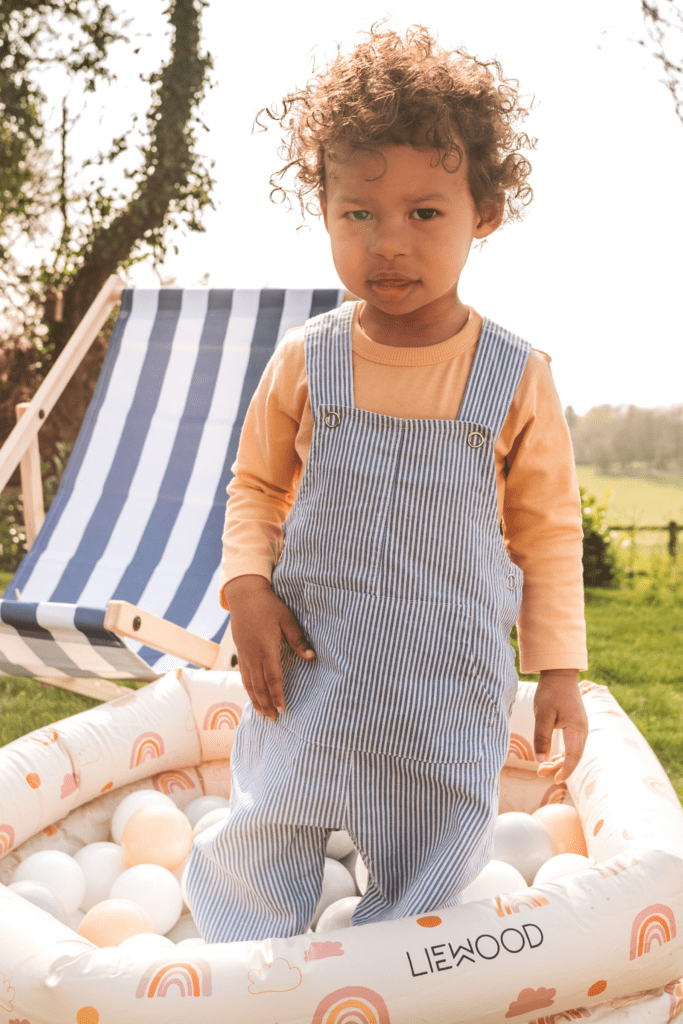
Can you tell us a bit more about the Malaria Consortium, how did you get involved with them and how is a Lullaloop customer helping/donating?
When I was 17 I travelled to Uganda on charity work. While I was there I spent a lot of time volunteering at medical clinics and also in orphanages, I was astounded at the devastation that Malaria caused, especially for young children. It seemed to be something that was so preventable, through medication or simply malaria nets, yet it caused so many deaths. It is something that always stuck with me.
I knew when I set up the business that I wanted to have a charitable aspect to the business and as a childrenswear brand, I wanted to focus on pregnant women and young children. I became aware of Malaria Consortium through GiveWell, who rated them as a top charity for their work through their Seasonal Malaria Chemoprevention project in Africa. I decided for each Lullaloop customer, we would donate medication to a child under 5 or pregnant woman.
What is next for you and LullaLoop?
For me, my focus will remain on Lullaloop and my young family! In terms of Lullaloop, we are focusing on continuing to grow the number of customers who are on the rental journey with us! For now, we are focusing on ages 0-2 and expanding our clothing collection, little by little, so that customers continue to have choices and love the style of our clothes, as well as the sustainability and saving benefits. Our aim is to then add age ranges and make our subscriptions even more flexible than they are today, in terms of how much people can rent and for how long.
Do you plan on extending the age range for the Lullaloop collection?
Yes, we plan to increase the age range soon. We have focused on up to age 2 for now, as this is the biggest pain point, in terms of growing out of clothes. However, we get so many requests to do bigger sizes and it’s in our plans to expand, hopefully soon!
Find out more about Lullaloop here

